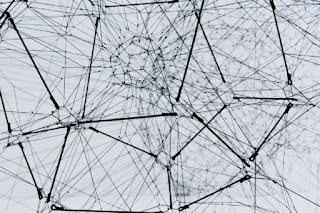The Internet of Things: Opportunities and Challenges for the Future

The Internet of Things: Opportunities and Challenges for the Future
Introduction
The Cyber space of Things (IoT) has emerged as a transformative
pressure, connecting billions of gadgets and sensors to the internet, and
reshaping industries, organizations, and our every day lives. While IoT
presents extraordinary possibilities for innovation and efficiency, it
additionally brings forth a fixed of challenges that ought to be addressed to
make certain a comfortable and sustainable future. In this text, we are able to
explore the possibilities and challenges that the Internet of Things affords
for the future.
Opportunities:
Efficiency and Automation
IoT permits automation on a huge scale. Businesses and
industries can streamline operations, reduce manual obligations, and optimize
useful resource utilization. For instance, in agriculture, IoT sensors can
monitor soil moisture degrees and automatically trigger irrigation structures,
improving crop yields and aid performance.
Data-Driven Decision-Making
IoT generates substantial amounts of data from sensors and
devices. This facts can be harnessed for actual-time insights and informed
selection-making. In healthcare, wearable IoT devices can continuously reveal
sufferers' vital signs, imparting docs with treasured facts for early detection
and intervention.
Cost Reduction
IoT can lead to price financial savings through predictive
renovation and useful resource optimization. For example, in manufacturing, IoT
sensors can screen device fitness and expect while renovation is needed,
lowering downtime and maintenance fees.
Improved Quality of Life
IoT programs can decorate our each day lives. Smart houses
ready with IoT devices can provide strength financial savings, increased
protection, and comfort. Wearable health trackers can assist individuals
monitor their health and well-being.
Environmental Sustainability
IoT can play a essential position in environmental
conservation. Smart towns can use IoT to optimize power usage, lessen
emissions, and enhance waste control. IoT-primarily based environmental
monitoring facilitates come across and respond to pollutants and weather
modifications.
Supply Chain Optimization
IoT technologies allow stop-to-give up visibility in deliver
chains. Businesses can music the motion and condition of products in actual
time, decreasing theft, spoilage, and shipping delays. This is mainly precious
in industries like logistics and transportation.
Enhanced Safety and Security
IoT enhances safety and protection throughout numerous
domain names. For instance, smart surveillance systems can use facial
popularity to identify ability threats in crowded areas. In the automotive
sector, IoT-enabled protection features can prevent injuries and keep lives.
Challenges:
Security Concerns
IoT gadgets are prone to cyberattacks. Weak security
measures can cause data breaches, unauthorized get entry to, and even tool
manipulation. As the wide variety of connected devices grows, addressing IoT
safety becomes increasingly more complicated.
Privacy Issues
IoT collects and analyzes tremendous amounts of personal
information. Concerns over records privacy and possession arise, specially in
relation to wearable devices, smart houses, and connected healthcare answers.
Clear guidelines and consent mechanisms are had to defend consumer privacy.
Interoperability
IoT gadgets frequently come from exceptional manufacturers
and use distinctive communication protocols. Ensuring seamless interoperability
between devices and platforms is a full-size venture. Standardization efforts
are essential to tackle this problem.
Scalability
As the IoT environment expands, dealing with and scaling IoT
deployments emerge as complex. Organizations ought to plan for the scalability
in their IoT infrastructure to house the growing range of devices and facts
volumes.
Energy Efficiency
Many IoT devices rely upon batteries, and optimizing their
energy performance is essential. Prolonged battery existence is crucial for
faraway and inaccessible IoT deployments, which include in agriculture or
environmental tracking.
Regulatory and Legal Challenges
IoT regularly spans across multiple jurisdictions, making it
hard to navigate regulatory frameworks. Compliance with statistics safety,
cybersecurity, and IoT-specific rules is a complex project for groups and
policymakers alike.
Data Management and Analytics
Handling the sheer volume of facts generated by way of IoT
gadgets may be overwhelming. Organizations should invest in robust statistics
control and analytics answers to extract significant insights and value from
IoT information.
Ethical Considerations
IoT increases moral questions regarding records collection,
consent, and the potential for surveillance. Striking a balance among
technological improvements and moral issues is a delicate undertaking.
Environmental Impact
The production and disposal of IoT gadgets could have an
environmental effect. Sustainable practices in tool production and accountable
disposal and recycling ought to be addressed to decrease environmental damage.
Conclusion
The Internet of Things presents a world of possibilities for
innovation, performance, and progressed exceptional of existence. From
healthcare to agriculture, transportation to environmental conservation, IoT is
remodeling industries and reshaping how we engage with the world. However, it
also comes with a hard and fast of complicated challenges, consisting of
protection, privateness, interoperability, and moral concerns, that demand
thoughtful answers.
The future of IoT depends on our potential to cope with
these demanding situations successfully. Policymakers, industry leaders, and
era professionals have to collaborate to set up requirements, policies, and
exceptional practices that make certain the accountable and comfy boom of IoT.
By doing so, we can harness the full capability of IoT while mitigating its
dangers, developing a destiny in which the benefits of a connected global are
accessible to all even as respecting privateness, protection, and ethical
values.


